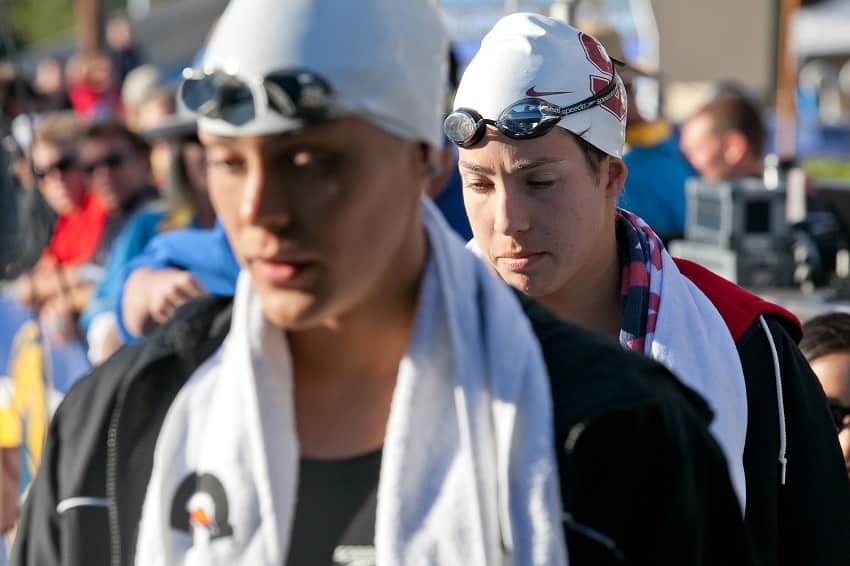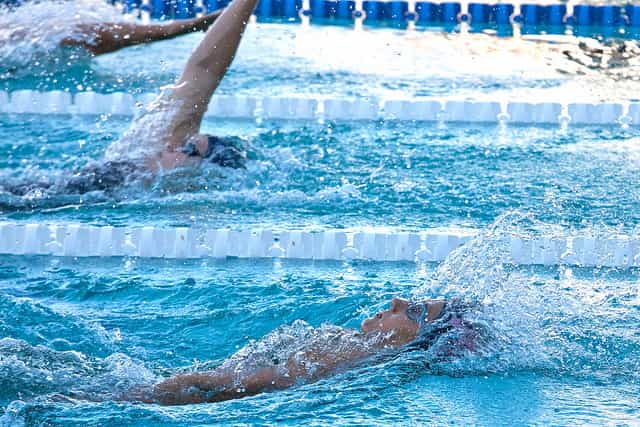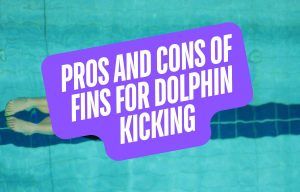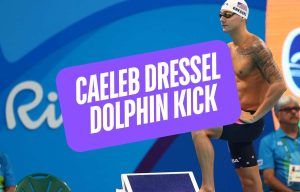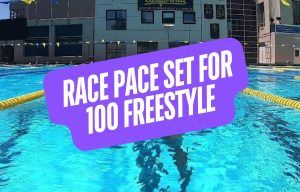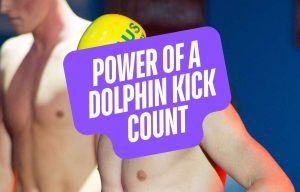We all have the things we excel at—and things we don’t—in the water. Strokes included. Here is why coach is having you train them.
We all have our strong strokes and distances.
They are our bread and butter. It’s the stroke that we lean on to carry us through the tough sets in practice, the stroke we automatically default to when coach scribbles “choice” or “best stroke” on the whiteboard.
And so it feels a little unfair or pointless when we are asked to specifically not work on this stroke during practice. Where coach has seemingly gone out of his way to create a set that will have you swimming your worst strokes for super un-fun distances and intervals.
No, your coach isn’t doing this for the sole pleasure of watching you struggle. (Though perhaps a few of them are…)
There is actually a lot of value in training your other, “off” strokes as well as your favorite one.
Here is why you should embrace the horror of training the strokes you try so hard to ignore in practice.
Why You Should Train Your “Off” Strokes
Here are a few reasons that swimming your less-than-awesome strokes in practice will help you ultimately swim faster:
Helps to keep you from being a one-trick pony.
Here are some chlorinated fun-facts for ya…
- Before Alexander Popov was a freestyle legend he was a backstroke specialist until his coach Gennadi Touretski turned him over onto his front as a teenager.
- Florent Manaudou was training for the 200 IM up until a year and a half before he won gold in London in the 50m freestyle.
- Janet Evans was an Olympic gold medalist in the 400m IM as well as distance freestyle queen.
While right now you may absolutely love doing only freestyle, back, breast or butterfly (fly or die!), you never know where your career will take you.
Training your other strokes and kicks creates a foundation from which you can use later in your career to diversify.
Early specialization is overrated; we think that in order to succeed we need to pick one stroke at the age of 6 and train only that bad boy for the rest of our swim careers. We latch on to the stories of prodigies like Mozart and Tiger Woods who were both very early specializers and (mistakenly) believe this is the only way that a swimmer can be successful.
In reality, developing a complete swimmer from the beginning insures that they have a big foundation to grow on as they mature as athletes, and avoid the stress and burnout that comes with only being good at one thing.
It will develop your feel for the water.
At its heart swimming fast is not about being stronger than the next guy or gal. It’s about being efficient. It’s about learning the best way to manipulate and pull/kick your way through the water.
Applying different types of pulling and kicking motions will help you improve feel for the water by forcing you to mix it up during training. Think of those off-strokes as drill work for your main strokes.
Playing around with how your hands react with and against the water doing strokes you aren’t as comfortable with will only help your main stroke(s).
Helps build aerobic capacity without taxing your main stroke.
Regardless of your event swimmers need a solid foundation of aerobic work.
It’s not just mindless, garbage yards—developing an aerobic base helps power future performances. As Bob Bowman is fond of saying, it’s about building a bigger cup (with the race speed work being what you fill the cup with).
Doing all this work doing only your main stroke would be shockingly tedious or downright brutal (ahem, butterfliers), and the mass of yardage opens the door to fatigue and poor stroke mechanics, a ripe combo for over-use injuries included our dreaded nemesis, swimmer’s shoulder.
Mixing up the longer, general training with off-strokes allows you to avoid the physical strain that comes with performing the exact same stroke for what feels like forever.
Variety is the spice of life.
And then, of course, there is the mental aspect of training the same stroke over and over.
Swimming is already a monotonous sport. We swim thousands of laps, back and forth. Every day, over and over again until what seems like the end of time. Doing the same stroke for all of that time spent in the water is a sure-fire way to speed up burn out.
Beyond the mental break of doing an off-stroke for once, training the other strokes gives you a fresh set of challenges and bests to improve on during practice.
In the same way that general athleticism makes for better, more-rounded swimmers, having proficiency in the other strokes helps you become a better rounded athlete in the pool.
The Takeaway
Yes, I know how frustrating it can be when coach writes up a workout that seems to purposely avoid your favorite or best stroke.
Having to train the strokes you aren’t as good at sucks. And few things suck more than sucking. But even though it looks like he or she is messing with you, there is a method to the madness.
Instead of grumbling use it as an opportunity to get into better shape, fine-tune your relationship with how you move through the water, and use it as a break from training your money-maker.
More Stuff Like This:
The 6 Best Gifts for Swim Coaches. Looking for a way to thank your coach for all of their hard work? Here is our list of awesome gift ideas for swimming coaches.

